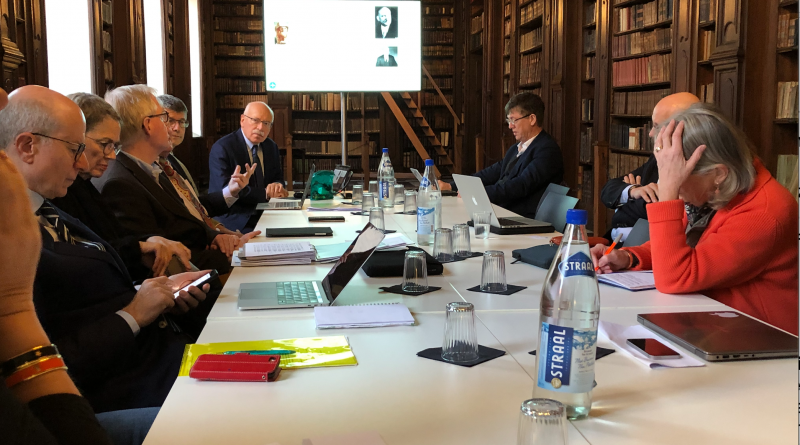wytyczne dla kształcenia specjalizacyjnego patologii w Europie
16 listopada w Gandawie, odbyło się kolejne posiedzenie UEMS Pathology. Głównym tematem było omówienie zatwierdzonych miesiąc temu w Londynie rekomendowanych minimalnych wymagań dla kształcenia specjalizacyjnego (European Training Requrements; ETR) w zakresie patologii w krajach UE. Przyjęty obecnie dokument w zakresie założeń ogólnych jest zbliżony do systemu obowiązującego w Polsce, z kilkoma wyjątkami. Poniżej przedstawiam oryginalne brzmienie rozdziałów dotyczących ram formalnych. Pozostałe fragmenty dokumentu wymagają jeszcze ostatecznej redakcji i korekty językowej.
FORMS AND METHODS OF TRAINING
The Trainee should take courses/workshops on the following topics, preferably external to the PS training site, for minimum of 2 weeks per year of training:
1. obligatory introductory course: Introduction to pathology, ethics and law in pathology, bio-banking and pathology department management
2. Course/workshop: basics of oncological histopathology
3. Course/workshop: basics of clinical cytology
4. Course/workshop: gynecology cytology
5. Course/workshop: hematopathology
6. Course/workshop: neuropathology
7. Course/workshop: advances oncological histopathology
8. Course/workshop: advances in clinical cytology
9. Course/workshop: selected elements of pediatric pathology
10. Course/workshop: grossing, standardized protocols for pathology reports, autopsy performing and autopsy protocols
11. Course/workshop: histopathology of bone and soft tissue lesions
12. Course/workshop: lung pathology
13. Course/workshop: ancillary techniques (histochemistry, immunohistochemistry, molecular biology).
Overall, the recommended minimal Number of diagnosed cases is
100 Autopsies
7500 surgical pathology cases
2500 cytopathology cases
50 complete Molecular Pathology Reports
Trainees are encouraged to take complementary learning courses:
1. Flow cytometry: basic use and indications
2. Bioinformatics
3. Radiology-pathology correlation
4. Specific pathology of rare disease
5. Pathology of glomerulonephritis
6. Pathology of interstitial lung disease
7. Pathology of transplantations
8. Pathology of inflammatory skin diseases
9. Pathology of neurodegenerative disease
Internships (without time for courses mentioned above; without vacations and abscences):
1. Basic internship in the field of pathology (192 weeks)
2. An internship in the field of forensic medicine (10 days/80 hours)
3. Internship in oncological pathology (20 days/160 hours)
Procedures and diagnostic tests
This section lists the procedures that a Trainee should be able to “carry out”, appropriately order and interpret:
- Sample reduction
- Gross and microscopic routine diagnoses
- Frozen Sections assessment
- Histochemical staining
- Immunohistochemical reactions
- Molecular analysis and reports
- Cytology smears assessment
- Clinical/Medical Legal autopsies
- Skills in Digital Pathology
- Skills in Informatics
- Electron microscopy assessment
For each procedure, the Trainee should
- know indications
- know contraindications
- be able to systematically and efficiently carry out the procedure, when required
- know the PRE-ANALYTICAL requirements and how to manage them
- know post-procedure and STORAGE & ARCHIVE management
For each diagnostic test, the Trainee should know:
- The best fixation procedures
- The sensitivity and specificity of the devised test
- The potential OVERLAPPINGS and DIFFERENTIAL DIAGNOSES
- The systematically interpretation of results
- Safety requirements.

